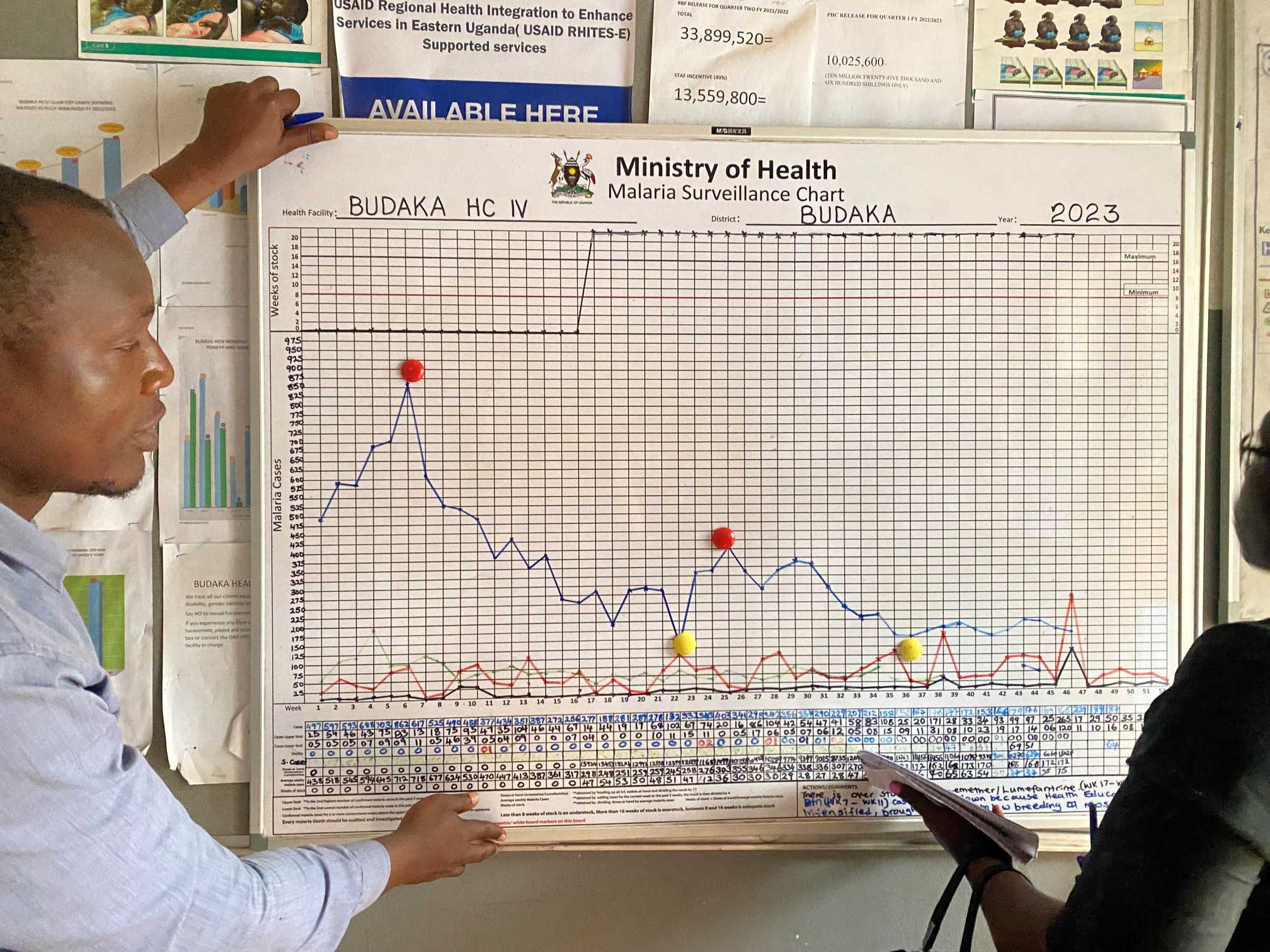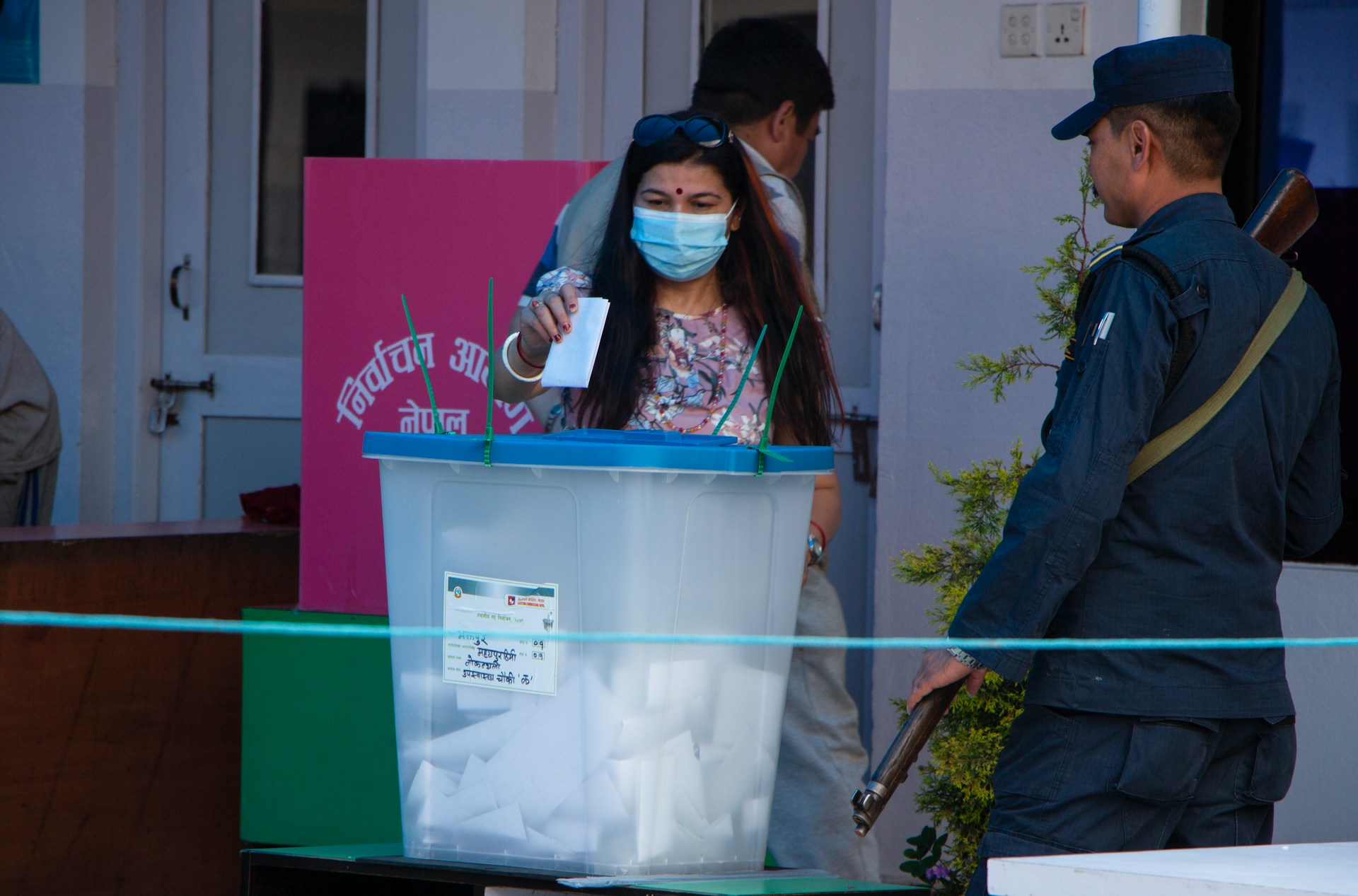Palladium strengthens local partners and communities to take a comprehensive and multifaceted approach to improving primary health care. We support the whole health system by addressing issues ranging from health management and governance to developing and implementing evidence-based, responsive policies that govern quality service delivery. We increase efficiency and resource allocation, advance data-informed decision-making, and strengthen capacity from the Ministry of Health to the clinic for improved service delivery, financial management, and leadership. Our support extends to community health workers and community-based organizations for community-led monitoring and advocacy. In addition, we support actors in the health system to conduct health labour market analyses, promote intersectoral collaboration, and enhance working conditions.
Our focus is on advancing health systems that deliver equitable, high-quality services for all. We shape policy implementation, budget allocation, and data-driven approaches to ensure targeted and effective health programs. We improve health care providers' skills and management capacity, addressing reproductive, maternal, newborn, child, and adolescent health, as well as COVID-19 and water, sanitation, and hygiene challenges. Advocating for and informing the implementation of effective logistics management systems, we ensure timely delivery of medical products and technology. Our expertise lies in designing health information systems and promoting accountability and responsiveness. We strengthen agencies and implement health insurance schemes for expanded coverage and financial risk protection in marginalised communities facing poverty.
Palladium fosters locally led, evidence-based, and inclusive policies that promote health equity. We deploy context-specific analytical models, adaptable tools, and data to identify priority needs and promote best practices. By strengthening government stewardship and decision-making processes, we empower evidence-informed leadership at all levels, from global to local communities. A critical aspect of our work is catalysing health financing reform at national and sub-national levels. As countries prioritise providing universal access to primary health care, we support the reallocation of resources to ensure funds are used efficiently. Through strategic partnerships, we tap into private sector investments that support health care initiatives and contribute to the achievement of universal health coverage. This approach allows us to reach a wider population and develop sustainable solutions for health care challenges.
At Palladium, we believe integrated health security (IHS) is the next step in global health security. Preventing, detecting, and responding to emerging infectious disease threats means taking a ‘One Health’ approach that recognises the interconnectedness of human and animal health and the environment. Our approach involves sectors beyond health and government, with the private sector contributing meaningfully. Palladium brings an integrated approach considering economic impacts, livelihoods, and aligning efforts at the regional, national, and local level. Palladium’s IHS approach aligns health security with foundational elements of effective health development, including localisation and gender equity. It facilitates coordination with related initiatives like primary health care acceleration and lifelong immunisation. Our IHS approach is focused on collaboration and equity to support communities that have historically carried the burden of health security while receiving limited benefit.
Our goal is to ensure partner countries are agents of their own growth and prosperity. For decades, our country teams have been driving our partnership approach with local partners—from government, private sector and civil society—to deliver on local priorities and plans in their respective ecosystems. Building on long-standing, trusted relationships, their ties to local capacity strengthening marketplaces, and deep wisdom of the political economy, our teams not only foster improved technical and leadership performance, but we reinforce relational capacities among partners at all levels to jointly steward more interlinked and resilient local systems.
Locally led development is how we work. Our local partners lead in design, implementation, and evaluation choices. We offer support for improving effectiveness and efficiencies to drive better outcomes. As we continue to glean best fit solutions and lessons learned from local and global experience, which we continue to ripple outward through cross country, regional and global exchange. Whether by strengthening public-private partnerships, market systems or social contracting, or by advancing our partners’ relationships with donors through direct awards and government-to-government funding, we seek to localize the delivery of development solutions.
Palladium provides customised, easy-to-use, and fit-for-purpose information systems and data management solutions to drive informed decision-making. We design and deliver technology solutions for health care providers to facilitate the collection and use of data for improved outcomes. We do this by developing highly configurable tools such as dashboards and interoperable data collection instruments, platforms, and warehouses.
We develop innovative forecasting tools that analyse economic and epidemiologic data to determine the future consequences of current development programs, policies, and resource allocation decisions at international, regional, national, and sub-national levels. We also design powerful but easy-to-use software and applications to help decision-makers, public health professionals, the private sector, and health advocates better understand the impact of current and future policy, epidemiology, and budget priorities.
In addition, we provide technical assistance to ministries of health and regional governments in the adoption, roll-out, and improvement of health management and human resource information systems for integrating and improving health outcomes and generating evidence for decision-making processes. Given the environments we work in, most of our solutions and tools are designed for use in resource-constrained countries with under-developed infrastructure, including rural areas with intermittent electricity.


